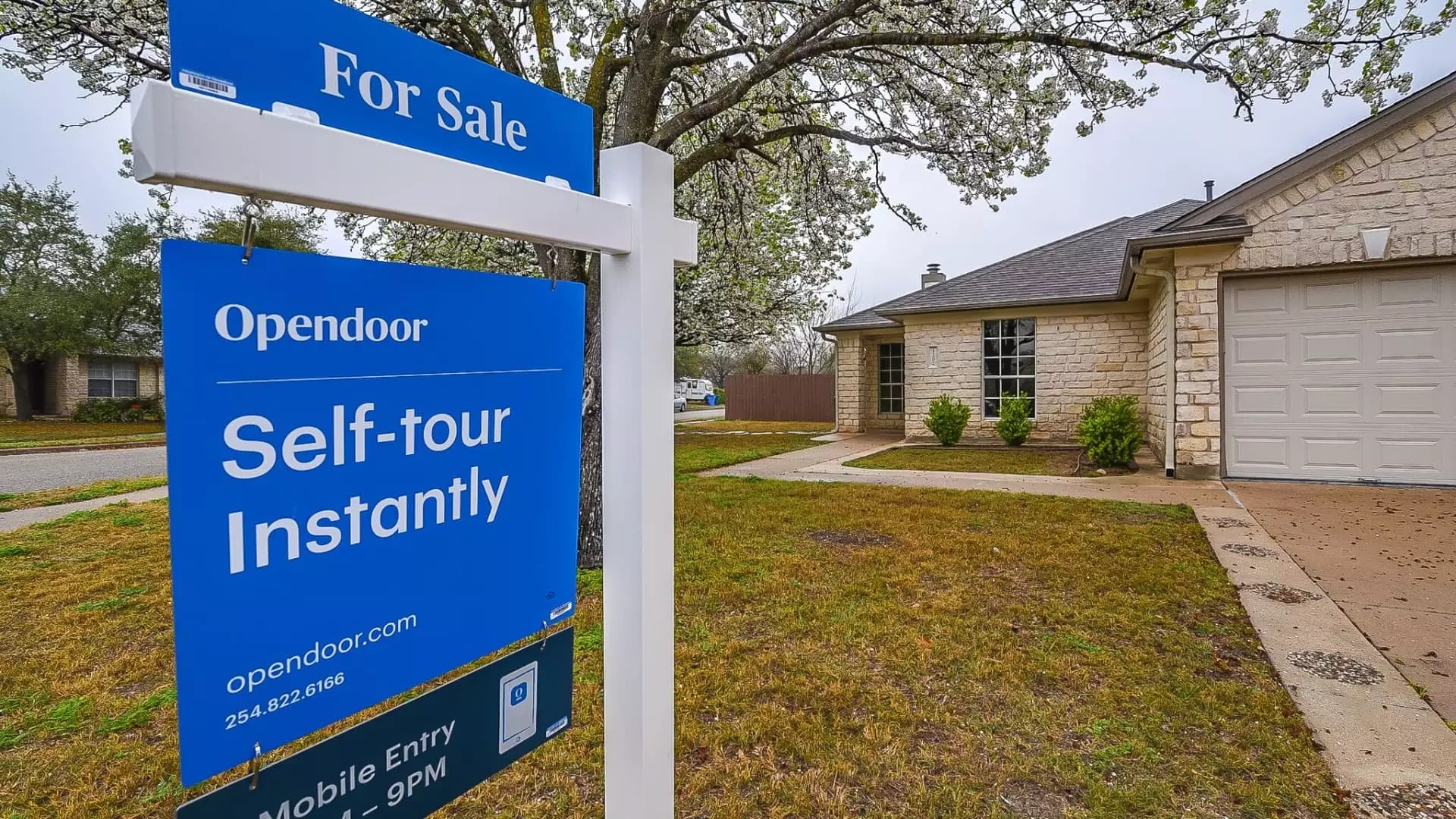Opendoor’s recent stock revival is a textbook illustration of how market sentiment can defy fundamental realities, driven more by speculation than sustainable growth. Once a darling of the pandemic’s booming housing market, the company’s trajectory has been fraught with setbacks and strategic missteps. In the past, Opendoor’s model—a technology-driven approach to buying and selling homes—promised to revolutionize real estate. However, the spike in interest rates, an unrelenting headwind, dealt a severe blow to its revenue streams, which plummeted by approximately two-thirds by 2022. The stock—that once traded as high as several dollars—dropped to an abysmally low 51 cents, forcing fears of delisting and prompting talks of a reverse split, measures that underscored the company’s precarious position.
Despite this history of instability, Opendoor’s shares have recently soared nearly fivefold since early July. This radical rebound raises serious questions about what truly drives investor enthusiasm. Is this a reflection of genuine operational improvement, or merely a short-lived speculative frenzy fueled by hedge fund bets and misplaced optimism? The answer likely lies somewhere in between, but the risks of riding such volatile waves without concrete performance improvements remain high.
The Illusion of Recovery: Are Investors Misreading the Signs?
At first glance, the latest earnings report offered some subdued reassurance. Revenue increased slightly, and losses shrank, signaling perhaps a tentative stabilizing trend. However, a closer look reveals a stark reality: upcoming earnings projections are bleak, with expected revenues to decline sharply—by approximately 36% year-over-year—and a significant reduction in the number of homes the company plans to acquire. These figures paint a grim picture of a business still struggling under the weight of high mortgage rates, dwindling buyer demand, and an increasingly saturated market.
The management’s strategic pivot toward a referral-based model suggests an acknowledgment of the difficulties that come with their original ‘instant home-flip’ approach. This shift—described as “the most important strategic shift in our history”—aims to reduce capital needs while attempting to adapt to a less hospitable real estate environment. It’s a sensible pivot but one that cannot be viewed as a guaranteed path to profitability. Transitioning from a capital-intensive business to a leaner, referral-focused approach takes time and patience—luxuries that seem scarce in today’s hypervolatile market.
The company’s rally has been compounded by high-profile backers like hedge fund manager Eric Jackson, who gleefully predicts an eventual stock price of $82. Yet, such optimism appears detached from current realities. Jackson’s bullish stance hinges on a hope that revenue growth will resume, market share will swell, and valuation multiples will realign favorably. History suggests caution: betting on future recovery based on no concrete evidence is a gamble, particularly when operating in a market as unpredictable as housing.
Market Sentiment versus Fundamental Reality
The recent surge may be nothing more than a speculative bubble—an overreaction of investors chasing after a revival story that has yet to materialize. Despite Wheeler’s claims of “enthusiasm” and “listening to feedback,” the underlying business fundamentals are weak. A narrow net profit improvement and subdued guidance should not be mistaken for signs of genuine health.
Moreover, the broader economic context compounds concerns. Persistently high mortgage rates continue to chill demand, suppressing transaction volume and forcing the company to scale back acquisitions and marketing efforts. These moves, while necessary, further dampen prospects for near-term growth. The idea that Opendoor can quickly turn the tide is optimistic at best.
Yet, the market often rewards hope rather than hard facts. In a liberal-leaning but centered economic view, this scenario reveals how emotional momentum can override pragmatic judgment. Investors often buy into stories of disruption, but when these stories rely on assumptions about future sales multiples and market share, they risk overlooking the fragile economic foundation beneath.
Ultimately, the recent rally exposes the danger of dismissing caution in pursuit of quick gains. While the company’s strategic shifts and the support of influential investors offer a glimmer of potential, they are far from guarantees. Without consistent revenue growth, profitability remains a distant goal—one that cannot be justified by fleeting market sentiment alone.


Leave a Reply